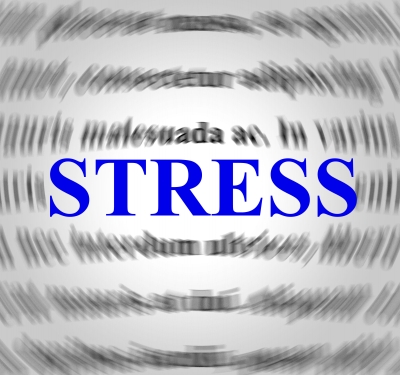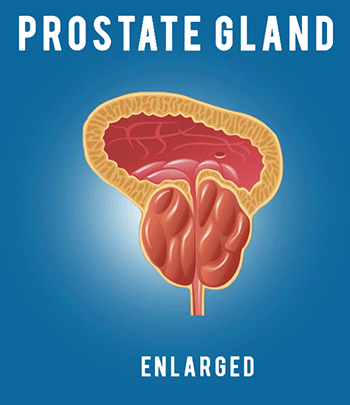Stress And Anxiety Treatments
Stress -Traditional Treatments

Image courtesy of Stuart Miles at FreeDigitalPhotos.net
Often talking your problems over with someone helps you to see things from a different slant. This can be helpful in finding a solution which you did not think of before.
Stress And Anxiety Treatments
Otherwise, your doctor may be able to prescribe certain forms of medication for you. Remember, some are addictive and you should beware.
Your doctor may suggest a counselor to pinpoint events or conditions that are stressful to you, and to devise ways of reducing the stress they cause.
Alternative/Natural Treatments
Any therapy that promotes relaxation and clarity are helpful with this condition.
Aromatherapy – Essential oil of lavender, sandalwood, and tangerine can help reduce stress: Try 5 drops of each in a bath.
Massage – This helps relax your whole body and mind. Use the following essential oils – lavender, sandalwood, tangerine, bergamot, cedarwood, clary sage, Frankincense or grapefruit.
Herbal Therapies – A traditional response to stress is to drink a cup of hot tea. Some herbalists suggest chamomile, passionflower, valerian, or ginseng tea. A traditional response to stress is to drink a cup of hot tea.
Lifestyle – If you feel stressed, try exercising to use up the hormones released.
Relaxation Tapes or Yoga – Meditation and relaxation tapes when used properly stimulate endorphin production. Endorphins have a chemical composition similar to morphine and help ease pain and lift mood.
Dietary Considerations
Eat more fresh fruit and vegetables, and filtered water. Less caffeine drinks such as coffee and tea.
If your stress is unbearable and persistent seek professional help.
Anxiety
Traditional Treatments
Anxiety can be treated with conventional medications, psychotherapy, and many alternative approaches.
Psychotherapy aims at identifying conflicts and other stresses that may lie at the roots of anxiety. Behavior modification, a therapy that concentrates on changing patterns of behavior can help the patient with coping with anxiety, as can cognitive therapy, which concentrates on changing ways of thinking and mental processes.
Medication is useful for alleviating the symptoms of anxiety and is often prescribed in conjunction with other therapies.
Alternative/Natural Treatments
Many alternative practices and treatments can relieve the symptoms of anxiety. Meditation, exercise (especially aerobic exercise), and relaxation techniques are among the most effective.
Chinese medicine uses various herbal preparations that can serve as a tonic for the whole system and reduce anxiety
Taking regular massages will be extremely beneficial as it relaxes the whole body and mind.
Other popular choices to reduce anxiety are…
- Aromatherapy – Bergamot (in a burner or massage), Neroli (massage), Vetiver (burner), Ylang Ylang (massage, bath or burner)
- Massage – Is extremely beneficial as it relaxes the whole body and mind.
- Bach Flower Remedies – Agrimony helps if you hide your worry behind a ‘happy face’, white chestnut leads to insomnia and is needed if you continually have mental arguments with yourself and unwanted thoughts – you may find it hard to concentrate on you daily happenings because of this worry. If you are over protective of your family, worry incessantly about what could happen to them and friends (to the point of making them concerned about these imagined happenings) you could take red chestnut. If you are worried about justice and fairness happening and are over-involved in causes etc – try vervain.
- Herbal therapies – You may be recommended to astragalus, bilberry, catnip, hops, kava, passionflower, peppermint, valerian, lemon balm, motherwort (if anxiety occurs with palpitations), skullcap, yarrow. There are also other various herbal formulas available. Possibly the premier antianxiety agent is Garum Armoricum®, an extract from the brain and stomach of the Great Bluefish native to Brittany in France. Garum Armoricum helps the body naturally produce endorphins and alpha waves without side-effects.
Agoraphobics (those with a fear of open places) were found to suffer from a lack of essential fatty acids. All agoraphobics exhibit classic signs such as dry skin, dandruff, brittle fingernails and nerve disorders. In one study 3 of 4 subjects improved after taking 2 to 6 tablespoonfuls of flax seed oil for 2 or 3 months.
Other substances with a positive effect on anxiety include:
The herb Rhodiola rosea, commonly called “Golden Root,” or “Arctic Root.” It comes from the polar arctic region of eastern Siberia at high elevations. Of the many species of Rhodiola, only rosea has the primary active phenylpropanoids of rosavin and salidroside among others.
St. John’s Wort is a common European herb that also has been naturalized in North America. It contains a number of aromatic, polycyclic compounds such as Hypericin, that have diverse medicinal properties.
- 5-HTP is capable of solving the seratonin deficiency problem. 5-HTP is 5-hydroxytryptophan, the substance from which the body makes serotonin. Serotonin is an important initiator of sleep. In numerous studies 5-HTP has been shown to decrease the time required to get to sleep and to decrease the number of awakenings. One of the benefits of 5-HTP is that it increases REM sleep and deep sleep. Total sleep does not change since other stages of sleep are shortened to compensate.
- Homoeopathy – If the anxiety is the result of a sudden shock, try Aconite. Ignatia it is the “grief remedy,” said to benefit someone who is upset by a sudden loss. Gelsemium is recommended for stage fright or anxiety over your performance. If none of these prove effective, Ask for professional advice.
- Mind/body medicine – such as Yoga, Meditation, Tai Chi and relaxation exercises. Daily exercise can be very helpful and enjoyable
- Magnesium supplements may be helpful, especially if you suffer from muscle spasms. Be careful with the amounts that you take.
- Avoid alcohol, and reduce or eliminate your consumption of sugar and caffeine.
- Try to avoid activities you do not enjoy or find relaxing.
Dietary Considerations
Try to sustain a healthy mix of fresh fruit and vegetables, low-fat diet with plenty of filtered water and exercise.


